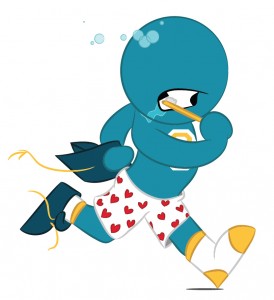 No Longer Playing for Fun
No Longer Playing for Fun
Becoming a college student-athlete means so many things–new experiences, a college education,and playing at an elite level. On a personal level, it means you’re no longer training and playing your sport just for fun.
Studies show that 15% of scholarship athletes give up their place on the team and their scholarship because they no longer want to compete. Many attribute this to burn out, choosing the wrong school, or falling out of love with the sport.
Reason for Leaving:Burn Out
Once you get through the recruiting process and have picked a school that is when the real work begins. Most athletes who make it to this competition level have played their sport a majority of their lives. Once you enter college as a student-athlete you’ll spend most of your time training. For some it can be upwards of 40 hours a week between practices, travel, competition and physical therapy.
In the off season it will be about 20 hours a week. Remember this is a job not just a game. Depending on the sport a good or bad season can mean a lot of money or notoriety for the school and athletic department.
Bottom Line: College Sports is Still a Business
There are reputations and people’s jobs on the line so they expect the most out of their athletes, especially those on scholarship. You need to really love the sport and continue to love the sport you’re playing in order to put in that kind of commitment.
You are a representative of the team on and off the field so even when you leave practice you need to be mindful of your actions and how it will affect your team. Whether it’s eating junk food or going to a party you probably should have skipped you always have to be on the alert in ways a non-athlete doesn’t.
Class Conflict
A majority of student-athletes’ athletic careers end the day their eligibility ends. They are in college to get a good education and plan for their future so when practices and game schedules start to interfere with classes student-athletes have a decision to make: take the class at another time (sometimes meaning adding a semester or two onto your college career) or take the class when it’s offered and see how that affects your place on the team.
Depending on the sport and the coach there may be several practices a day so you may be able to move your normal time slot to practice with another part of the team in order to make your class, but this also means that you are not getting the training you might need. If you swim and are a sprinter but have to change your practice schedule to practice with the distance swimmers, you are still getting a practice but it is not individualized to meet your needs the way practicing with the sprinters would. This could ultimately affect your performance.
Social Life
Student-athletes also realize that their life is different from a normal student at the same school. Just like any other job you may have that helps put you through school, athletics can really impact your time and how it is spent.
You develop relationships and are given access to many things as a student-athlete but you have a lot of restrictions put on you as well. For example, some coaches don’t allow athletes to join fraternities/sororities or other clubs on campus because they don’t want the time commitments to interfere with practices.
Your College Experience will Be Different
I’m not saying that student-athletes are miserable, but as a potential student-athlete you need to realize that you are not going to have the same college experience as the normal student. This sport has now become your job, and no longer a hobby. You represent the school in everything you do, so you have to answer to your coach and the athletic department for all of your actions.
Being a student-athlete is a wonderful experience and such a few number of people get to experience it. Be mentally and physically prepared to take on the responsibilities and choose your school wisely. Your coach and teammates will be your social, athletic and in many cases academic environment for the next four years.
If you have questions or comments about the college athlete experience please use the comments section below or connect with us on Facebook or Twitter.